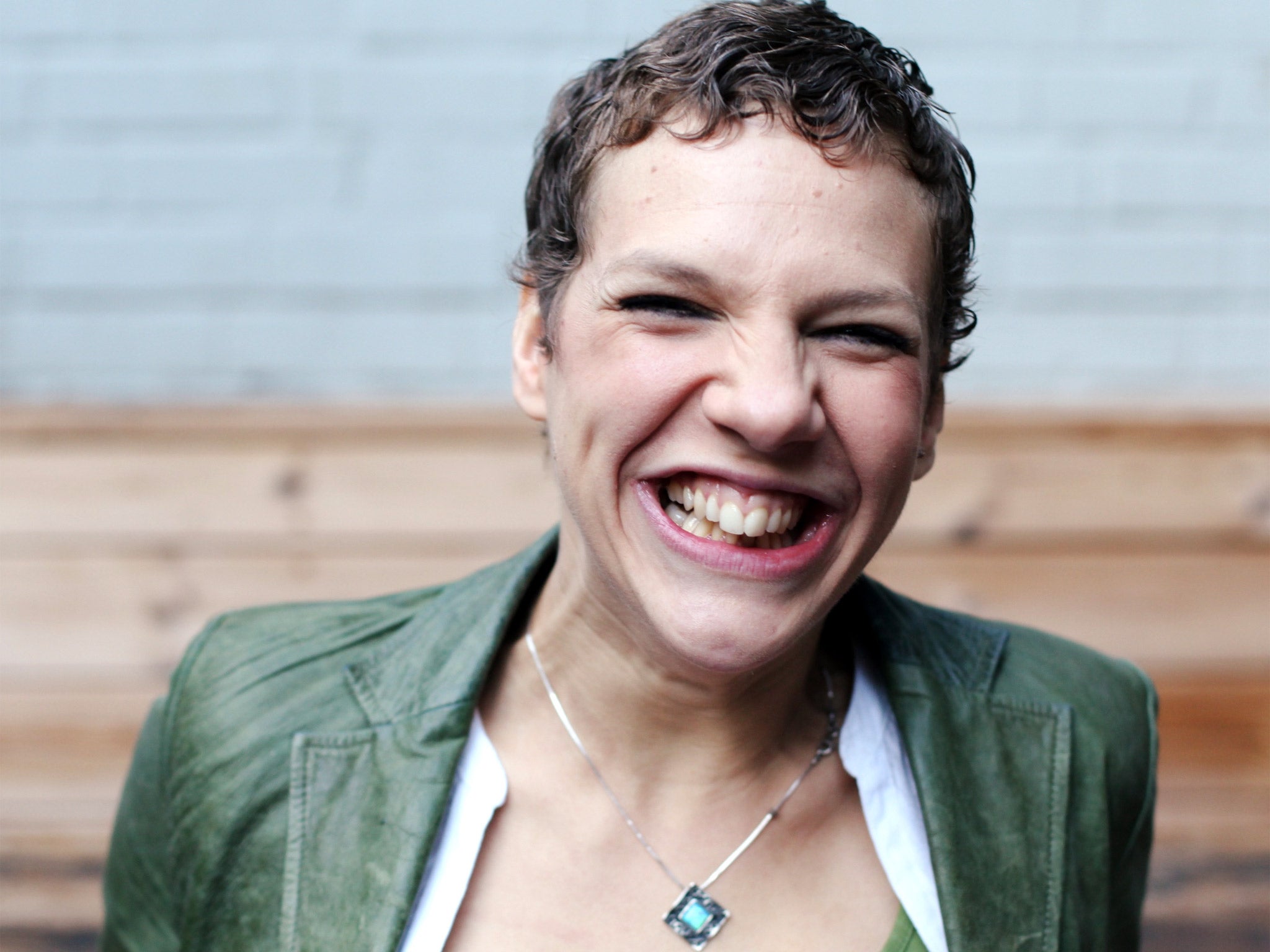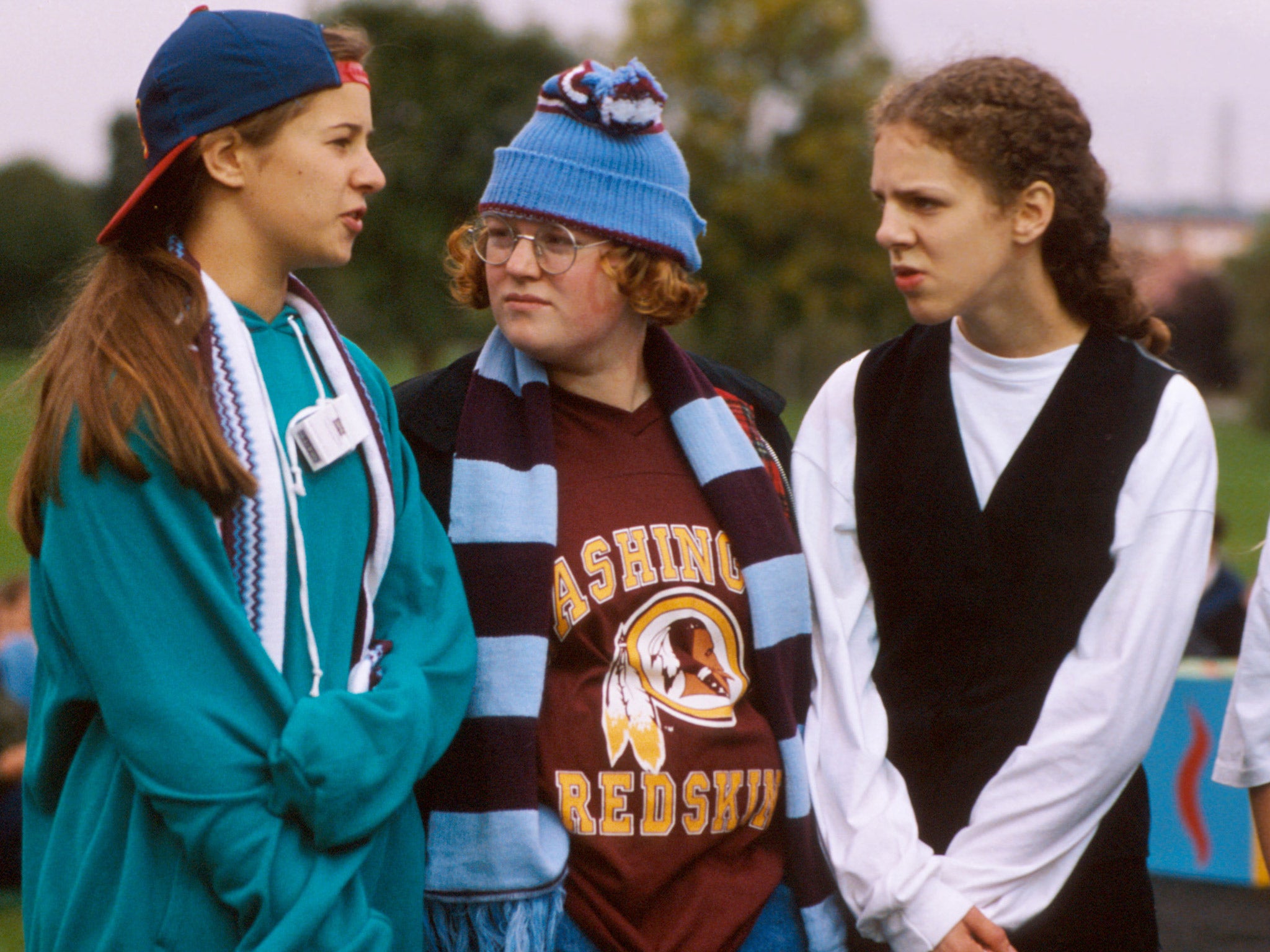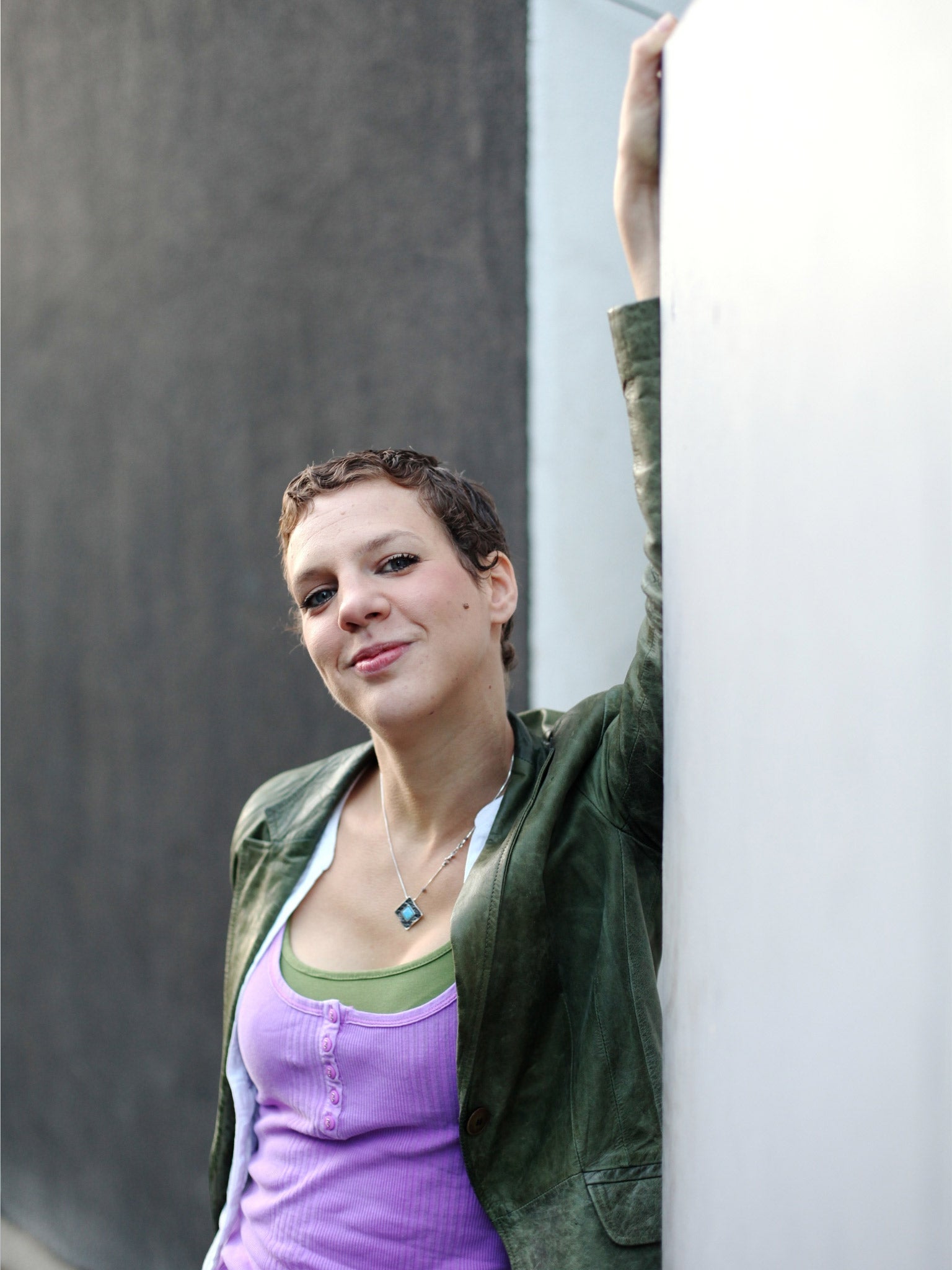Comedian Francesca Martinez: 'I've accepted my cerebral palsy - now I'm calling on others to join the revolution'
After years of being defined by her cerebral palsy, the comedian, author and actor had an epiphany. She decided to stop trying to fit in and just accept herself – 'wobbliness' and all

Your support helps us to tell the story
From reproductive rights to climate change to Big Tech, The Independent is on the ground when the story is developing. Whether it's investigating the financials of Elon Musk's pro-Trump PAC or producing our latest documentary, 'The A Word', which shines a light on the American women fighting for reproductive rights, we know how important it is to parse out the facts from the messaging.
At such a critical moment in US history, we need reporters on the ground. Your donation allows us to keep sending journalists to speak to both sides of the story.
The Independent is trusted by Americans across the entire political spectrum. And unlike many other quality news outlets, we choose not to lock Americans out of our reporting and analysis with paywalls. We believe quality journalism should be available to everyone, paid for by those who can afford it.
Your support makes all the difference.Ever the procrastinator, I sat down to write my 2011 stand-up show one week before it was due to open at the Adelaide Fringe. I knew the title was going to be "WHAT THE **** IS NORMAL?!" and that it had been bubbling away in my head for years. I also knew that life, Facebook and Twitter had made it almost impossible to convert that bubbling into actual words that could be said out loud. Luckily, when I finally switched off the internet (it is possible, folks), the show flowed out over a couple of days in several terrifyingly easy splurges. I had, after all, been waiting to write this show all my life...
When I was two, I was diagnosed with athetoid cerebral palsy. As if this wasn't enough for my young parents to hear, the consultant also declared that I was mentally retarded. My parents knew that wasn't true. (They may have reconsidered this when, aged 10, I bought a Jason Donovan album.)
When the label "ABNORMAL" is slapped on you before you're out of nappies, your self-esteem is destined for oblivion. It would be years before I started to feel "abnormal" but, even when I began to wobble around on my feet, there were the stirrings of a vague unease in my stomach; a faint feeling that the world viewed me as a pity object – faulty, broken, disabled. Thankfully, my family forgot about my palsied brain, and smothered me with love, so I pushed away that distant discomfort and got on with living.
I rocked up to infant school with a crazily optimistic outlook, ready to climb trees, wind up teachers and seduce young boys. I'd decided boys were awesome probably before I knew what "awesome" meant. Junior school was nearly as much fun (aside from the "education" bit) and the presence of a palsy hardly registered on my radar. As unlikely as it might sound, I felt totally normal.
High school soon remedied that. There probably isn't an environment more effective at reminding you of your shortcomings than an all-girls school. I realised with shock that I was, without a doubt, ABNORMAL. Not just because of my disability but on account of various crucial factors such as my choice of music (Frank Sinatra was not cool, apparently). So when, aged 14, I won a part in Grange Hill, I was frigging ecstatic to be rescued from that teenage prison. However, even though the show was a hugely positive experience, my inner confidence remained as shaky as my balance. By the time I left, I had the self-worth of a wet sock. I had fully taken on board my classmates' views of me and had privately declared myself to be a loser who would end her days as a wobbly old spinster with only Old Blue Eyes to get her through those long lonely nights.
On the surface, I still appeared happy, but I was obsessed with trying to be "normal" all the time. Brain damage isn't easy to hide but I gave it an admirable shot. When the stress of trying not to be wobbly in public became unbearable, I stopped the "normal" act and faced my demons. By which I mean I stopped going out, moped around my house and moaned a lot to my brother.
At the beginning of 1999, I reluctantly joined a comedy workshop as research for an acting role. Standing (and visibly shaking) on stage, I addressed my wobbliness head-on. Instead of dying with embarrassment as people's eyes drilled holes through me, I felt something shift inside. Through a simple joke, I'd found a way to speak honestly about who I was. I had finally wobbled out of the disability closet.
Later, in the pub, Dylan, another student, congratulated me on my "electric" walk. He said he loved the way I talked and moved and shook on stage. I thought he was crazy. He was, but he was also beautiful. So I listened to him. And I'm glad I did because he changed my life. He made me realise that nobody is normal. I wasn't wrong or faulty or abnormal – I was just Francesca. Everyone on the planet is different and that is normal. I was just part of the crazily diverse species we call human. I could now see that my walk wasn't "bad", it was simply my walk. For the first time since I was a child, I felt proud of myself. That night, lying in bed, I apologised to my body for hating it for so long, and decided to like it instead. Finally, I wanted to be me.

This radical shift in perspective transformed me from whingy git to a very grateful one in minutes. It allowed me to dump society's unhealthy aspirations and focus on what I did have. And it made me see that all the soul-crushing anxieties that had blighted my recent years had nothing whatsoever to do with being wobbly. The latter had just been a side issue. I was living in a world where self-loathing was absolutely normal.
Most people around me – including the obscenely beautiful and supremely able-bodied – suffered from terrible body image. And it had nothing to do with any kind of palsy and everything to do with a culture that religiously promotes impossible ideals. The real cause of my unhappiness was growing up in a world which continually tells us that we're not good enough, that we have to conform to a predefined set of parameters in order to be considered successful, beautiful, desirable. (This, despite the fact that most of those successful, beautiful and desirable people seemed to have an awful lot of breakdowns.) We're told to fear difference in ourselves and others, and that's why much of the media projects such an airbrushed version of reality. I wondered why physical perfection was always linked to happiness when it often appeared to cause problems. I mean, if being rich and beautiful leads to inner peace, wouldn't we all be buying self-help books from Kate Moss? So who did this ubiquitous superficial value system really serve?
It became clear why this mass worship of conformity dominates our culture. It's not because it spreads light and joy and peace across the globe, it's because our society is built on consumption. And consumerism will only thrive if you can convince enough people that they're lacking in some way, and that what they really need is the latest product/outfit/look to be "normal". That's it. We're sold this lie so that we'll keep buying crap that we don't need. So that we'll continue to attempt to attain "normality" through purchases and surgeries and upgrades and iShit. Incessant advertising gnaws away at our self-worth and then generously steps in to fill the gap. Again and again. But this empty cycle of acquisition and obsessing about trivialities just leads to debt, unhappiness, and a deep dissatisfaction with our lives and bodies. It is a culture that is fundamentally at odds with the fact that difference and disability are a natural, normal part of life.
When I stopped pursuing someone else's idea of normality, I began to enjoy life again and my priorities changed. Instead of looking inwards and fretting about my numerous imperfections, I felt my perspective broaden. It became patently clear that I was ridiculously, extraordinarily lucky. A quick look outside my own tiny world was enough to make me feel guilty at my own indulgence. I'd wasted years worrying about the way I walked or talked, while millions of other humans lived in war, poverty, without clean water or food or shelter.

Closer to home, there were so many people who had grown up without enough love and care and support, who were lonely and unable to trust others or form healthy relationships. These disabilities were invisible but I knew they were far worse than being a bit wobbly. My childhood suddenly seemed more precious than anything else and I felt pangs of guilt for having taken that for granted. Being loved had given me everything I needed, and that, together with my new-found self-acceptance and appreciation for what I had, was all I needed to be happy.
The sinister truth is that this slavish adherence to superficial values not only fuels the endless fires of consumerism, it also disempowers people so that they are unable to focus on the really important stuff like protecting human rights, reducing inequality, tackling an unjust economic system, challenging the corporate takeover of our democracies, and averting environmental destruction. Promoting "normality" is a political choice that serves the powerful, while leaving the rest of us (ie "good citizens") dissatisfied and insecure. Who needs armies to control people if you can keep them busy chasing shiny things instead, or struggling to make ends meet?
That's why accepting yourself as you are is an act of civil disobedience. Because you're thinking for yourself. You're not partaking in a cycle that is destroying the environment and which functions by exploiting millions of people who are producing all this junk on poverty wages. And you're also freeing up valuable time and energy to focus on things that desperately need our attention.
Performing the show around the world has been an incredible experience. I've received numerous messages from people of all ages telling me that understanding why these pressures to be "normal" exist has freed them from those pressures. That's why I wanted to explore these ideas further in a book.
So don't let anyone else make you hate yourself. Embrace your body, whatever shape it is and however it works, because it gives you this wonderful, crazy, beautiful, fleeting experience called life. And because every single human right we enjoy today has been won by people focusing outward not inwards.
Join the wobbly revolution.
Francesca Martinez will be performing five dates of her award-winning show, "What the **** is Normal?!", followed by an interview about her new book with comics Frankie Boyle, Fred Macaulay and others, at the Edinburgh International Conference Centre (EICC) starting tomorrow. See the EICC website for more details; eicc.co.uk
'What the **** is Normal?!', by Francesca Martinez (Virgin Books, £12.99), is out now
Join our commenting forum
Join thought-provoking conversations, follow other Independent readers and see their replies
Comments